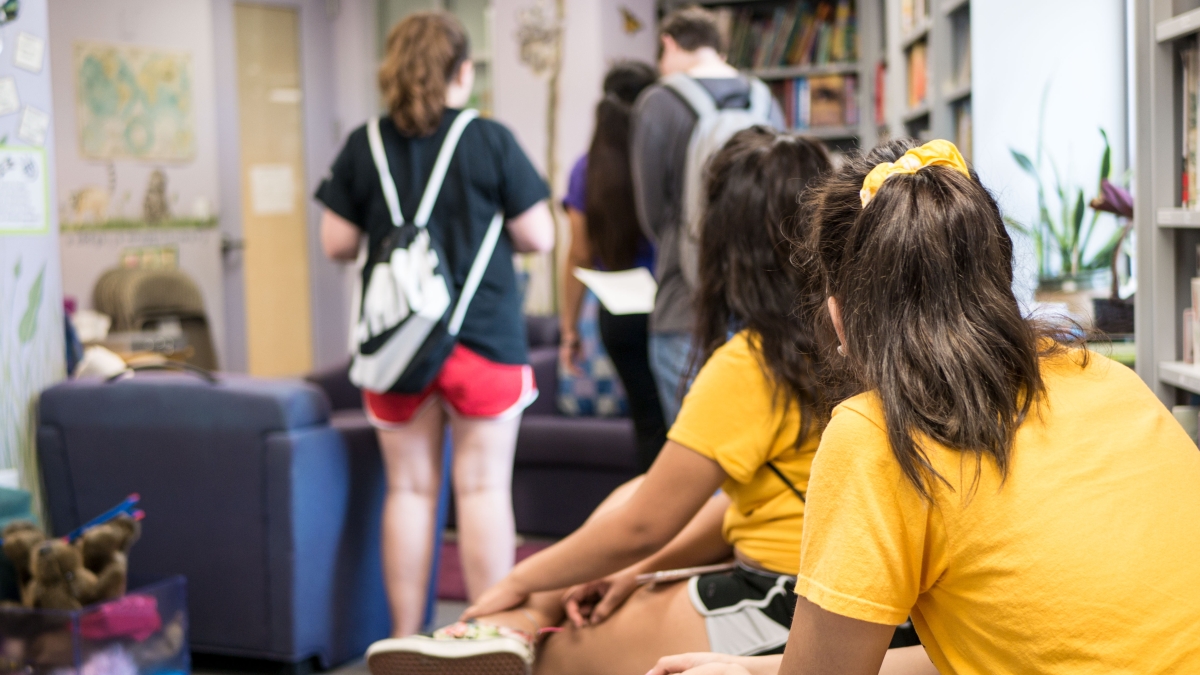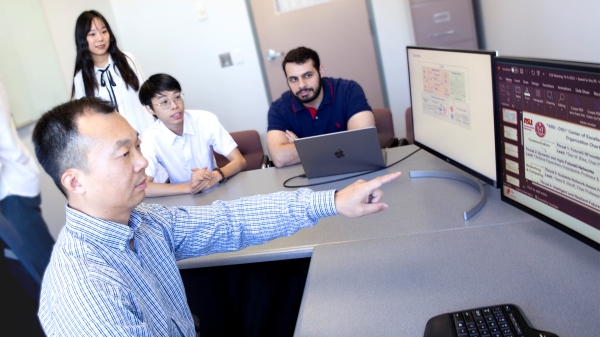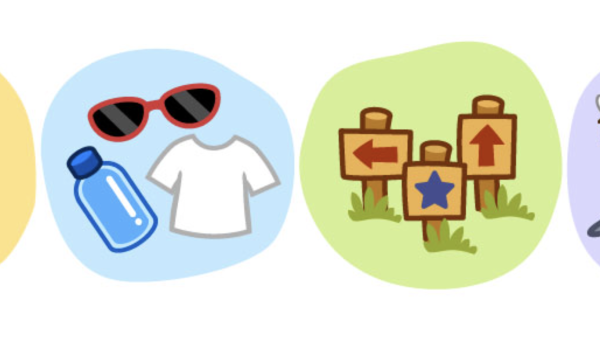ASU Early Start students give back to homeless children, community

The Early Start Program is a two-week intensive program that introduces students to psychology at ASU. The program previews some of the available psychology courses and was designed to give incoming freshmen the opportunity to discover their class options and to start thinking about what career prospects they can have with a degree in psychology. Photo by Rob Ewing/ASU
One of the best ways to learn if you should study psychology in college is to go and experience psychology in action. Carolyn Cavanaugh-Toft leads the Early Start Program in the Arizona State University Department of Psychology, a two-week intensive program that introduces students to psychology at ASU.
The program previews some of the available psychology courses and was designed to give incoming freshmen the opportunity to discover their class options and to start thinking about what career prospects they can have with a degree in psychology.
“I wanted to give the incoming students a chance to learn what opportunities they have in the Department of Psychology, both in research as well as in internships,” said Cavanaugh-Toft, a senior lecturer in the Department of Psychology who was recently named ASU College of Liberal Arts and Sciences lecturer of the year. “One place I wanted to introduce the students to is a place called Homeward Bound.”
Homeward Bound is an Arizona nonprofit that serves homeless families, providing training and housing to help the families get back on their feet. Each year Homeward Bound helps more than 130 families in the Phoenix area. Often these families include young children who are in a pivotal stage of early development.
“Children who enter the public education system from homeless situations are at a critical disadvantage long-term if they do not learn the life skills to cope with the cycle of homelessness,” said Marcos Hernandez, a senior manager at Homeward Bound.
In 2015, the National Center for Education Statistics reported that more 2.5 percent of public school students are homeless. Being homeless while in school can cause academic performance to suffer, and it is a known risk factor for mental and physical health problems. Arizona is no different than the rest of the country: Over 2.6 perecent of students in Arizona schools are homeless.
Students in the Early Start Program participated in service learning projects and saw firsthand what a nonprofit organization has to do to succeed in helping others. The students sorted donations, reorganized learning centers and helped the Homeward Bound case managers with children at the center.
“We have to be mindful of our clients’ experiences, and we can’t look at everything through our own lenses,” said Patsy Rethore-Larson, vice president of programs at Homeward Bound. “We need to have a sense of understanding that our interaction with a client is based on a lifetime of experiences. It is so important to have a relationship based on mutual respect in order to make a difference.”
By volunteering at Homeward Bound, the Early Start Program students were exposed to what a career in child services could be like, and they also learned what a complex issue homelessness can be.
“Working with Homeward Bound is a wonderful experience for the students. They might not have thought much about what can cause homelessness, and it is important to have their assumptions challenged,” Cavanaugh-Toft said.
More Science and technology

Advanced packaging the next big thing in semiconductors — and no, we're not talking about boxes
Microchips are hot. The tiny bits of silicon are integral to 21st-century life because they power the smartphones we rely on,…

Securing the wireless spectrum
The number of devices using wireless communications networks for telephone calls, texting, data and more has grown from 336…

New interactive game educates children on heat safety
Ask A Biologist, a long-running K–12 educational outreach effort by the School of Life Sciences at Arizona State University, has…